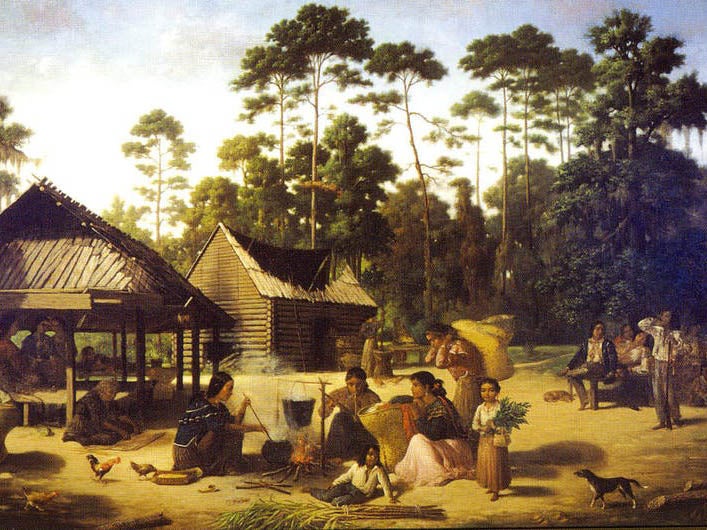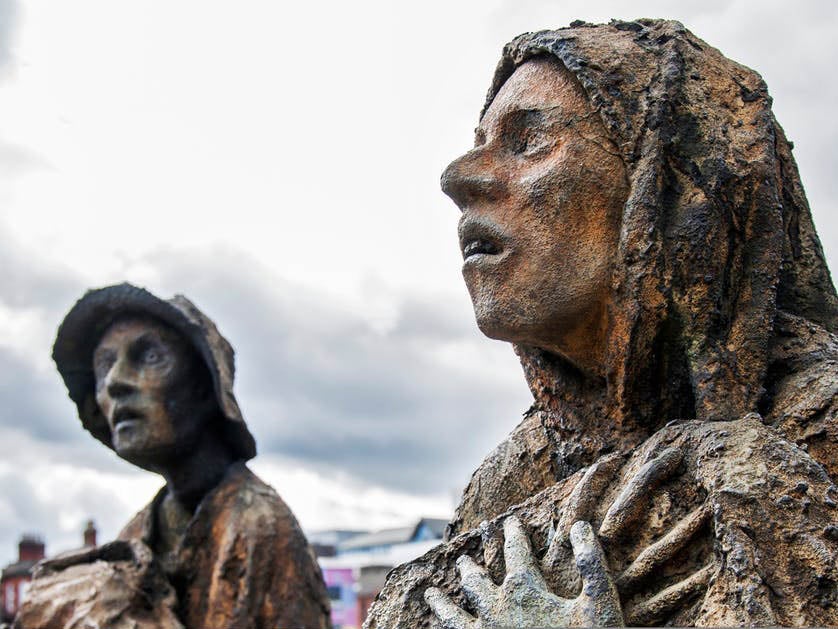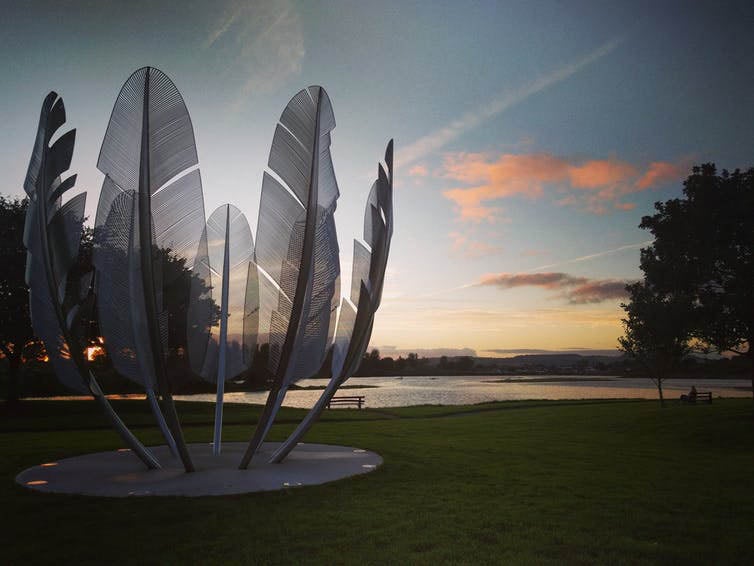How a displaced Native American tribe helped ease starvation in the Irish famine
The Choctaw Nation of American Indians suffered great losses in the 19th century – but hearing of starvation in Ireland, they gathered what they could to help

Your support helps us to tell the story
From reproductive rights to climate change to Big Tech, The Independent is on the ground when the story is developing. Whether it's investigating the financials of Elon Musk's pro-Trump PAC or producing our latest documentary, 'The A Word', which shines a light on the American women fighting for reproductive rights, we know how important it is to parse out the facts from the messaging.
At such a critical moment in US history, we need reporters on the ground. Your donation allows us to keep sending journalists to speak to both sides of the story.
The Independent is trusted by Americans across the entire political spectrum. And unlike many other quality news outlets, we choose not to lock Americans out of our reporting and analysis with paywalls. We believe quality journalism should be available to everyone, paid for by those who can afford it.
Your support makes all the difference.In the winter of 1847, the people of Ireland were suffering from a devastating famine. Meanwhile, members of the Choctaw Nation of American Indians, one of the five great southern tribes of the United States, met in a small town in Indian Territory called Skullyville. There, members of the tribe discussed the experiences of the Irish poor. It was proposed that they would gather what monies they could spare. This wasn’t going to be much in the wake of their recent removal from their tribal homelands east of the Mississippi River.
Ultimately, they collected $170, a sum roughly equivalent to $5,000 (£3,900) today. Rather than use what money they had to buy badly needed resources in the new territory – land, food, housing, and so on – the tribe made the altogether remarkable decision to send a goodly portion of their money to those who were starving and destitute in Ireland.
There was an unprecedented global response to the Irish Famine of 1845-52, and aid came from many sources. But the fact that the Choctaws had suffered great losses in the early decades of the 19th century makes their donation particularly marvellous. In those years, the tribe had endured displacement, poverty and untold hardship. Virtually all of this had been caused by their removal from their ancestral lands following the Treaty of Dancing Rabbit Creek in 1830.
Of course, Ireland, the destination for the charitable gift, was also a site of great hardship. This was the worst famine that was to befall any European country in the 19th century. The blight that decimated the potato crop in 1845 was a calamity of huge proportions; a million people died and at least a million more emigrated.

Choctaw charity
What, we might ask, led to the Choctaw peoples’ particularly affecting instance of generosity? The historian Turtle Bunbury has credited Major William Armstrong with gathering the collection at Skullyville. Armstrong, who was of Scots-Irish descent and had been appointed special agent and superintendent of the removal of the Choctaws from their homes east of the Mississippi River in 1832, may well have spoken of Ireland’s plight.
But it seems more likely that the task of calling the meeting would have fallen instead to one of the 27 elected representatives who made up the Choctaw general council, or one of the executive department’s three district chiefs. Those tribal leaders possibly heard about the Irish famine from recently settled Irish immigrants or religious missionaries.
The Choctaw’s extraordinary act of charity has a lot to say about contemporary philanthropy and nation-to-nation relationships. To those of us alive today, it is a salient reminder that we live in an interlinked global village. We might read it as a true moment of cross-cultural interaction, championing the power and importance of true selflessness and solidarity. LeAnne Howe from the University of Georgia, reminds us of that fact when she notes that the word “ima”, which means “to give” in the Choctaw language, carries the connotes that there are “no strings attached”.
Of course, the tribe’s concern for the people of Ireland might also be viewed in terms of diplomacy and perhaps even deliberateness. The monies gathered in Skullyville became, in many respects, emblematic of the Choctaw’s continued autonomy, strength and robustness; it was a sign of their endurance and moral strength.

Looking back
In any event, it is important that we remember not only the generosity shown by the tribe, but also the Irish people’s great need at that time. Speaking in 2002, at the official dedication of the Irish Hunger Memorial in New York, the thn Irish president Mary McAleese described Ireland as “a first world nation with a third world memory” (echoing Irish academic Luke Gibbons). McAleese’s words underlined the manner in which our values and ideals in the present moment, as well as our ability to map new futures, are influenced by our understanding of history.
It is in that spirit, I believe, that Ireland recently sought membership of the United Nations Security Council. On the whole, the Irish see themselves as obligated rather than entitled. America’s tribal peoples often see themselves in the same light; connected and compelled to think both globally and connectedly as well as locally and collectively. Jodi Byrd has written a wonderful precis of this metaphoric cosmos or worldview as it is held by her tribe, the Chickasaw. The Chickasaw are closely linked to the Choctaw, and their jurisdictional territory includes 7,648 square miles of south-central Oklahoma. Byrd explains that her community "locates itself initially within the particularities of Chickasaw and Choctaw structures of relationality and governance, and from there it looks out towards a region, a hemisphere – to a world".
Views of this kind are sorely needed in our world today, especially when international politicians such as Matteo Salvini, Italy’s interior minister, and US president Donald Trump are employing the rhetoric of discrimination and illiberality to further their political ends.
By remembering the great hunger and the Choctaw’s gift, Irish people such as myself are reminded of our reliance on others in the past and our good fortune now. And we might all be reminded of the importance of tolerance, acceptance, empathy and dialogue between culturally distinct communities.
Padraig Kirwan is a senior lecturer in the literature of the Americas at Goldsmiths, University of London. This article first appeared on TheConversation.com
Join our commenting forum
Join thought-provoking conversations, follow other Independent readers and see their replies
Comments